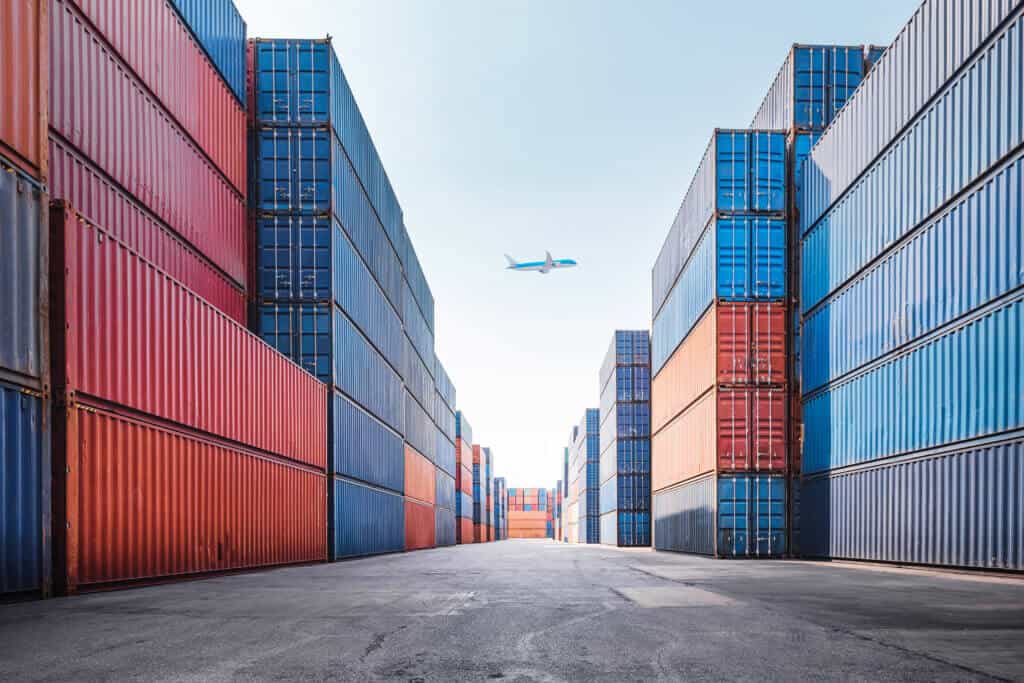
In today’s interconnected global marketplace, businesses constantly expand and engage in new international trade opportunities to increase revenue. However, these opportunities come with risks, especially regarding export compliance with ever-shifting trade regulations. In this comprehensive guide, explore the concept of export compliance and dive into a detailed Export Compliance Checklist that highlights six key steps to reduce risk and inefficiency in your trade operations using game-changing technology.
Understanding export compliance
Export compliance is the act of adhering to the laws, regulations, and guidelines that governments and international bodies set for companies when exporting goods to foreign nations. Governments develop these export control laws to ensure that exports do not undermine national security, foreign policy interests, or international agreements.
Why export compliance is vital
Export compliance is necessary to protect:
- National security: Export controls are designed to protect a country’s national security interests by preventing the proliferation and distribution of weapons, chemicals, technology, and information to unauthorized users or uses.
- International relations: Export compliance fosters positive international relations by ensuring alignment with foreign policy objectives and agreements.
- Economic interests: While export restrictions can impact a sanctioned country through high costs, export restrictions can also potentially harm domestic exporting or importing firms, lowering domestic investment and economic growth. This means economic considerations are important when countries develop new export policies.
Why companies need to adhere to export laws
There are many regulations that companies must adhere to to ensure compliance. Some of these regulations within the United States include the International Traffic in Arms Regulations (ITAR), the Office of Foreign Assets Control (OFAC), and Export Administration Regulations (EAR) that regulate the export of “dual use” goods. Noncompliance can lead to issues such as:
- Loss of export privileges: Many foreign markets require adherence to export compliance regulations as a condition for market access. Non-compliance can result in market exclusion.
- Reputation management: Maintaining a strong record of export compliance enhances a company’s reputation while demonstrating a commitment to ethical business practices.
- Legal penalties: There’s no way around it; compliance with export laws and regulations is mandatory. Violations can lead to severe penalties, fines, and even imprisonment.
How to reduce export compliance risk and inefficiency with technology
To help streamline and simplify the many aspects of an export compliance audit checklist, companies can leverage the power of best-in-class export technology solutions—making the checklist more precise and efficient.
The following are six key steps in the export compliance process that highlight how export management technology can reduce risk and inefficiencies:
- Product classifications: Using machine learning (ML) can help to ensure precise, validated product classifications. The ability to automate the product classification process is done by analyzing product attributes and specifications to determine the correct export control classification number (ECCN), reducing the risk of misclassification and compliance issues.
- Country-specific rules: Some compliance technology can automatically cross-reference all relevant country-specific regulations against every sales order line. Technology can be employed to perform real-time checks against the specific regulations of the destination country, ensuring that each export transaction complies with the intricacies of that country’s export laws.
- Screening restricted parties and destinations: Technology can help businesses efficiently screen restricted parties and designations by swiftly identifying and flagging transactions involving denied parties or embargoed destinations to reduce the likelihood of doing business with sanctioned entities.
- Managing end-user scenarios: Technology streamlines assessment and the identification of potentially harmful end-user scenarios.
- Export licensing and documentation: Businesses must manage export licensing efficiently while ensuring correct data and formats in multiple languages. Technology can simplify export licensing by automating the application process and ensuring all necessary data is accurately documented and presented in the required languages and format.
- Electronic filing: Implementing electronic filings with automated error and compliance checks reduces administrative costs, optimizes workflows, and streamlines the submission of export documentation. These systems often include automated error checks, reducing the chances of compliance-related mistakes.
By integrating export management technology into these key steps of your export compliance checklist, you can significantly reduce the risk of compliance violations and make your trade operations more efficient and error-free.
E2open export compliance software: automation, efficiency, and accuracy
At e2open, we understand the complexities and challenges of international trade. Our export compliance software automates trade compliance while seamlessly integrating into your company’s existing processes, ensuring efficiency and accuracy.
Our export compliance solutions are designed to help you reduce risk, manage licenses, and lower costs by:
- Guarding against penalties and brand risk: Compliance with export regulations and procedures using automation technology helps your company avoid costly penalties and risks.
- Classifying goods with accuracy: Product classification according to the latest Harmonized System (HS) codes and export control numbers (ECNs) helps ensure greater accuracy.
- Providing companies with access to over 900 restricted party and sanctions lists: Comprehensive and proven automation lets you quickly screen restricted parties using the world’s largest trade content database.
- Establishing compliance globally: A wide range of automated compliance checks enables you to efficiently comply with thousands of country-specific regulations and export laws.
- Easily identifying restrictions and licenses required: If your transactions require an export control license, the system informs you and indicates what documents you need to provide.
- Centralizing document management: License usage, exemptions, end-user statements, critical trade documents, and other detailed information can be tracked and stored for easy access.
Whether you’re a seasoned global player or new to international trade, our services can help you confidently navigate the regulatory landscape.
Don’t let export compliance hinder your growth. Contact us today to learn how e2open can elevate your export management processes.







